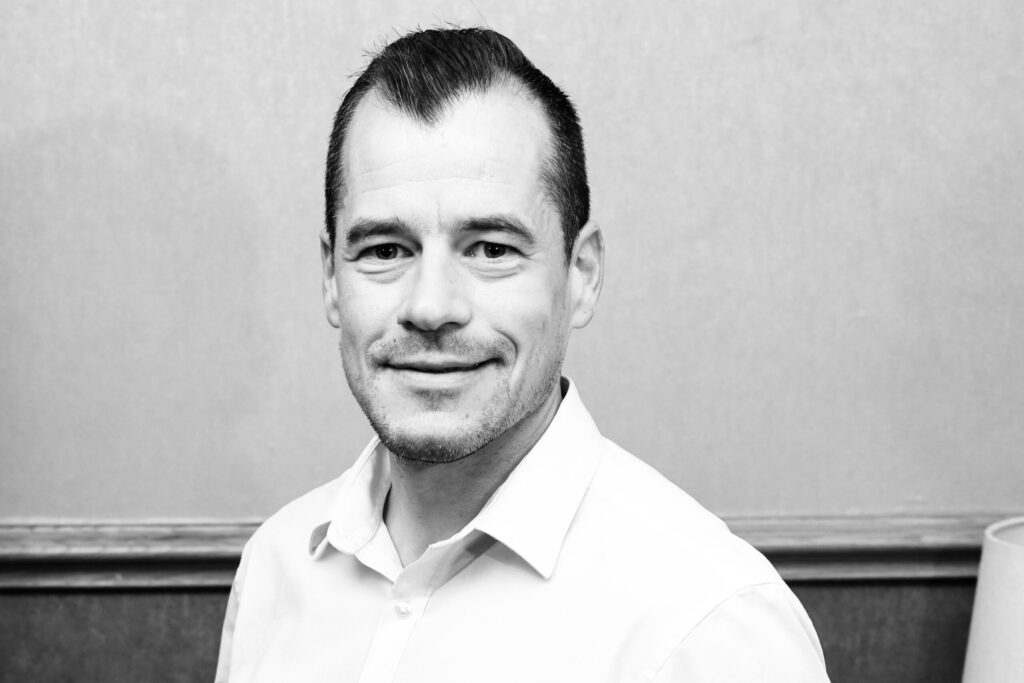
Alex Farr, CTO at professional services company Christie Group, talks us through his journey from coding on a Commodore 64 to multi CIO100 Award winner.
When I joined Christie Group last year, ‘Chief Technology Officer’ was a brand-new role for them. It was about bringing in someone outside of Christie’s day-to-day operations to work with the Managing Directors and IT Directors in each subsidiary business to see how it could leverage technology to grow its conglomerate of professional services businesses – and what could be done collectively, too.
So, when people ask me what it is I actually do, I always say I try to find ways to use technology to help grow business. It’s as simple as that… in the explanation, anyway!
Growing up I had a young uncle; he had a nice house, nice cars, all the latest tech – being completely honest I was impressionable. But we’d mess around on his Commodore 64 coding and creating our own games. My pathway in IT grew from there – basically mirroring his.
I had a decision to make when I finished my National Diploma in computer studies – go to university or get a job as a junior to an IT manager. All of a sudden there was a salary on the table and I did the latter. And that was the start of where I am today.
Would I recommend that choice? Possibly, but I think there is a third route now; I’ve used our apprenticeship levy to bring people into the organisation and it’s great. You get to study while having hands-on experience. To me, that’s probably the better balance.
The most challenging moments of my career are where I learned the most. I was hired to be IT assistant at one company and my manager immediately left. So I was thrown into the deep end and really had to think on my feet.
At that particular healthcare tech organisation, they had a great product but were struggling to find clients to buy it. They parachuted in an MD, he saw me talking to my colleagues and immediately told me that if I didn’t have some work to do, he’d find me some. That line has stuck with me for nearly 25 years now and it shaped the kind of leader I want to be and the culture I wanted to foster.
IT has this reputation for being nerdy and solitary, but you need interaction with your colleagues and your customers. You are essentially delivering services and products to help people work better, whether colleagues or clients. How can you possibly design, develop, and implement something that will benefit others if you’re not talking to them, understanding their issues and their problems?
I would always say to other CTOs or CIOs that you really must make yourself one of the team if you want to understand how you can help the business grow. You have to be the most social person in the organisation. You can’t think you know it all either; even an apprentice can teach you so much.
"You can’t think you know it all… even an apprentice can teach you so much.”
During my time at a transportation innovation company I had what I called a ‘unicorn’ role; it was a bit like being an IT business partner. They’d go and sit with teams across the organisation and just listen to some of the challenges preventing them from achieving some of their objectives, try to understand what their strategy was, and then try and solve that problem using technology.
I call it a unicorn role because it certainly doesn’t exist in most organisations. But I think it’s absolutely critical; you have to make sure that you’re developing things that are going to make a difference rather than throwing technology down people’s throats for the sake of it. I was recently asked, “how can we make use of AI?” My immediate response was: “For what purpose?” Clearly, you want to look at how you can leverage it, but it has to be for a reason, to create value for staff, rather than just because everyone is talking about it.
We’ve started to explore the use of gamification at Christie Group and I really think it’s going to be huge. It’s now all about how business uses that technology to capture the imagination and inspiration of both staff and customers.
With my Apple Watch and so on, with all the fitness-based badges and rewards I can gain, I’m already gamifying my life in a way I hadn’t really considered. Unless you sit back and reflect, you forget how immersed we all are in tech.
I’ve been lucky enough to be in the CIO Top 100 in recent years, and while it’s a great honour, the biggest benefit is the networking opportunity. The number of WhatsApp groups and communities I’m on with other CTOs, CIOs and IT directors! It can be quite a lonely role but being able to reach out to others when you have problems or challenges has been like free consultancy from some of the most senior tech leaders in the country.
I still sometimes suffer with imposter syndrome. I wonder how this average person can suddenly be responsible for the technology at a great PLC like Christie Group. It’s a real privilege.
I mentor someone and I’m always telling them to reflect, look back, take notes… but often I don’t do that enough myself! But I’ve been around some great people and I’ve made some very good choices at the right time. You can’t do that without teams of brilliant people around you.


